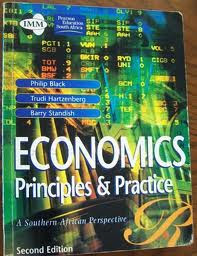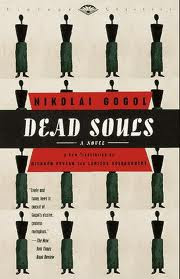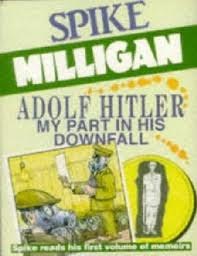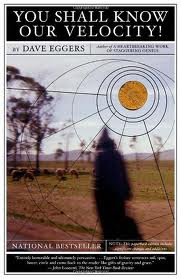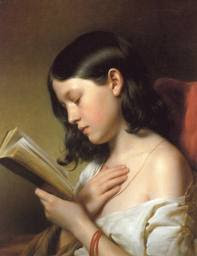
It has been strangely touching collecting the list of what I read this year.
MY KENYA DAYS, for example, took me right back to the bottom of my parent’s closet in Harare where I found it in January; the seventeen books of June reminded me of how little I slept that month; LOST IN TRANSLATION took me right back to my cousin’s bookcase in Nairobi.
I read exactly 100 hundred books in 2011.
The best:
–ABSENT by John Eppel, a hilariously sad satire of contemporary Zimbabwe, and that rarest thing, a coherent account of white African identity
–FREEDOM by Jonathan Franzen, a fabulously Victorian novel of contemporary America
–THE BRIEF AND WONDROUS LIFE OF OSCAR WAO by Junot Diaz, a brilliant and funny account of a multinational dork’s life
–GONE WITH THE WIND by Margaret Mitchell, an oldie but still a goodie
–MY ANTONIA by Willa Cather, on the romance of the Midwest
–PORTNOY’S COMPLAINT by Philip Roth, on masturbation as a major philosophical event.
Some books I thought I loved, have somehow receded for me (such as THE IMPERFECTIONISTS by Tom Rachman) but the above have stayed with me as special, secret gifts that have enriched my life.
Let’s draw a discreet veil over THE FINKLER QUESTION and I DREAMED OF AFRICA.
Here’s my 2011:
1) MY KENYA DAYS by Wilfred Thesiger
2) ABSENT by John Eppel
3) THE BOY NEXT DOOR by Irene Sabatini
4) FREEDOM by Jonathan Franzen
5) THE FINKLER QUESTION by Howard Jacobson
6) THE SELFISH GENE by Richard Dawkins
7) BILLY BROWN I’LL TELL YOUR MOTHER by Bill Brown
8) FEAR OF FLYING by Erica Jong
9) THE ART OF FIELDING by Chad Harbach
10) GONE WITH THE WIND by Margaret Mitchell
11) HAIRDRESSER OF HARARE by Tendai Huchu
12) THE LACUNA by Barbara Kingsolver
13) LETTERS BETWEEN A FATHER AND SON by V.S Naipaul
14) CAN YOU FORGIVE HER? By Anthony Trollope
15) BLACK BOOK by Ian Rankin
16) BLEEDING HEARTS by Ian Rankin
17) IT’S OUR TURN TO EAT by Michela Wrong
18) THE CORRECTIONS by Jonathan Franzen
19) KNOTS AND CROSSES by Ian Rankin
20) THE BRIEF AND WONDROUS LIFE OF OSCAR WAO by Junot Diaz
21) THE FIFTH WITNESS by Michael Connelly
22) JULIET, NAKED by Nick Hornby
23) FAR FROM THE MADDING CROWD by Thomas Hardy
24) THE MOON AND SIXPENCE by W. Somerset Maugham
25) THE ENGLISH PATIENT by Michael Ondaatje
26) TWILIGHT by Stephenie Meyer
27) RABBIT, RUN by John Updike
28) VANITY FAIR by William Makepeace Thackeray
29) LOST IN TRANSLATION by Nicole Mones
30) EAST OF EDEN by John Steinbeck
31) GOODBYE TO ALL THAT by Robert Graves
32) THE LAST RESORT by Douglas Rogers
33) I DREAMED OF AFRICA by Kuki Gallmann
34) BOSWELL’S LIFE OF JOHNSON by Boswell
35) THE THOUSAND AUTUMNS OF JACOB DE ZOET by David Mitchell
36) THE THING AROUND YOUR NECK by Chimamanda Ngozi Adichie
37) NOT ANOTHER DAY by Julius Chingono
38) HISTORY OF A PLEASURE SEEKER by Richard Mason
39) HOUSE OF MIRTH by Edith Wharton
40) NEVER LET ME GO by Kazuo Ishiguro
41) PORTNOY’S COMPLAINT by Philip Roth
42) THINGS FALL APART by Chinua Achebe
43) BLACK DAHLIA by James Ellroy
44) I AM AMERICA (AND SO CAN YOU!) by Stephen Colbert
45) REUNION by Alan Lightman
46) ARE YOU THERE VODKA? IT’S ME, CHELSEA by Chelsea Handler
47) BABBITT by Sinclair Lewis
48) THE EAST OF EDEN LETTERS: JOURNAL OF A NOVEL by John Steinbeck
49) NAKED by David Sedaris
50) ALL THE PRETTY HORSES by Cormac McCarthy
51) OUT OF AFRICA by Karen Blixen
52) PHINEAS FINN by Anthony Trollope
53) FEVER PITCH by Nick Hornby
54) FLY FISHING FOR SHARKS by Andrew Alexander
55) IN THE MIDST OF LIFE by Jennifer Worth
56) PERSONAL MBA by Josh Kaufman
57) MY ANTONIA by Willa Cather
58) THE GOOD COMPANIONS by JB Priestly
59) THE BEAUTIFUL AND THE DAMNED by F. Scott Fitzgerald
60) ADRIAN MOLE: THE WILDERNESS YEARS by Sue Townsend
61) BURNT TOAST ON SUNDAYS by Roland K Hill
62) JOYCE GRENFELL REQUESTS THE PLEASURE by Joyce Grenfell
63) KING LEOPOLD’S GHOST by Adam Hochschild
64) THE POSTMAN ALWAYS RINGS TWICE by James Cain
65) A CANTICLE FOR LEIBOWITZ by Walter M Miller
66) BABYVILLE by Jane Green
67) LONESOME DOVE by Larry McMurtry
68) IF THIS IS A MAN by Primo Levi
69) I DO NOT COME TO YOU BY CHANCE by Adaobi Tricia Nwuabani
70) THE SANTALAND DIARIES by David Sedaris
71) BRIGHT SIDED: HOW THE RELENTLESS PROMOTION OF POSITIVE THINKING HAS UNDERMINED AMERICA by Barbara Ehrenreich
72) ALL THE SAD YOUNG LITERARY MEN by Keith Gessen
73) THE IMPERFECTIONISTS by Tom Rachman
74) LIT by Mary Karr
75) PRIVATE LIFE by Jane Smiley
76) THE CRIMSON PETAL AND THE WHITE by Michael Faber
77) NERVOUS CONDITIONS by Tsitsi Dangarembga
78) TRUCKERS by Terry Pratchett
79) WE ARE ALL MADE OF GLUE by Marina Lewycka
80) WHITE MISCHIEF by James Fox
81) AGNES GRAY by Anne Bronte
82) A WALK IN THE WOODS: REDISCOVERING AMERICA ON THE APPALACHIAN TRAIL by Bill Bryson
83) SAY YOU’RE ONE OF THEM by Uwem Akpan
84) BEFORE I FALL by Lauren Oliver
85) SKIPPY DIES by Paul Murray
86) THE RIVER AND THE SOURCE by Margaret A. Ogola
87) THE MARRIAGE PLOT by Jeffrey Eugenides
88) BARREL FEVER by David Sedaris
89) ONE DAY I WILL WRITE ABOUT THIS PLACE by Binyavanga Wainana
90) WHO KILLED PALOMINO MOLERO? By Mario Vargas Llosa
91) DRESS YOUR FAMILY IN CORDORY AND DENIM by David Sedaris
92) THE SUN ALSO RISES by Ernest Hemingway
93) THE EUSTACE DIAMONDS by Anthony Trollope
94) ECONOMICS: PRINCIPLES AND PRACTICE (Standish et al)
95) STRATEGY SAFARI (Mintzburg et al)
96) DEAD SOULS by Nikolai Gogol
97) ADOLF HITLER: MY PART IN HIS DOWNFALL by Spike Milligan
98) PALACE OF DESIRE by Nagoub Mahfouz
99) ROME: A CUTLURAL, VISUAL AND PERSONAL HISTORY by Robert Hughes
100) KOKORO by Natsume Soseki
Onwards and upwards.

